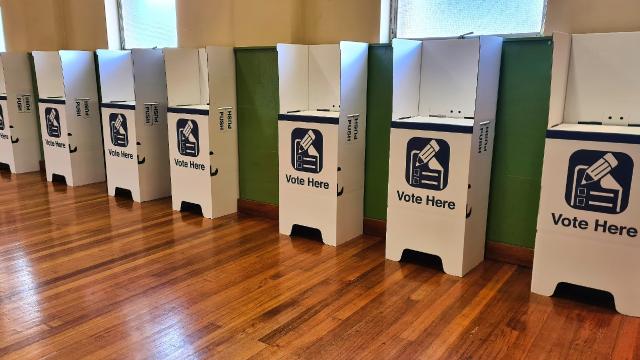In case you didn’t know, Australia has a federal election coming up on May 21. While that part may be common knowledge, some of the other aspects of the election are not and the Australian Electoral Commission recently held a Reddit AMA to answer some of those burning questions.
Here are a few things we learned about the election process from the AEC.
Things you may not know about the Federal election voting process
Can you cast a postal vote from overseas?
The federal election still has fairly strict requirements for voters to turn up to polling booths in person. However, measures like postal votes and pre-polling are in place for those who can’t vote on the day. But what about if you’re an Australian living or travelling overseas?
For Australians living overseas, it is not compulsory to vote and Aussies can complete an overseas notification form to alert the AEC of their absence.
However, if you do wish to vote while out of the country it’s important to apply for a postal vote, and to do it ASAP.
In terms of postage turnarounds, the AEC reps (Tom Rogers, Jeff Pope and Kath Gleeson) addressed this in their AMA saying:
“On overseas postal votes, we are in a sense hostages to overseas postal systems and their handling times. However, we’ve also been working very closely with DFAT for some time now to speed up the process where at all possible. For most countries, when you’ve filled out your postal vote, you’ll be able to mail it back to an embassy instead of direct to the AEC. DFAT will then use diplomatic mail to get it back to Australia ASAP.”
How does the AEC count votes in Australia?
The process of counting 17 million ballots is anything but simple and the AEC outlined a few things in the AMA.
For starters, the reps said that the AEC can’t release its counting software code for public verification due to national security implications. But they did point us to this video on how it all works.
Basically, there are many processes in place to get ballots from polling booths to results. There are custom made boxes involved with each being securely sealed at every step of the journey, always with multiple witnesses to ensure there has been no tampering.
Then when it comes to counting, every ballot has to be manually input by a human, twice. Then the papers are scanned by a machine and both results are compared. If there are any discrepancies the vote is re-examined. Scrutineers are also present during counting and can watch and challenge at any time.
Does the AEC recycle election ballot papers?
According to the AEC, 65 million ballot papers are used in a federal election, along with 4.5 million pencils, 155,000 voting screens and 70,000 ballot boxes. That’s a whole lot of paper and cardboard for one election.
So what happens to it when the voting is done?
AEC representatives said on Reddit “We are conscious of our footprint and do our best to recycle our materials wherever possible.”
This includes using raw cardboard for the first time in 2022, which makes it even easier to recycle and share cardboard with other state and territory electoral commissions for future elections.
What happens if there’s a natural disaster on polling day?
Australia has, unfortunately, seen its share of natural disasters lately. Can polling still take place in communities that have been ravaged by disaster?
The answer from the AEC here was that they do have contingencies in place but, realistically, if disaster strikes it’s not always possible for everyone to vote:
“We’re very experienced at delivering a large manual election, and things always occur. We have business continuity plans ‘coming out the wazoo’ (direct quote from Kath here) and there is a process for us to follow under the Electoral Act if a natural disaster occurs on polling day.
We’re also realistic that extreme circumstances mean that some Australians might not be able to access their vote if the absolute worst happens. This is the nature of elections.”
Could online voting ever be an option for the federal election?
As the AEC outlined, voting in our current world of cyber security threats would be “extremely challenging”.
It’s actually not up to the AEC to decide the ways in which Australians vote, so a switch to online voting processes would have to be legislated in parliament.
In their online voting explainer, the AEC says there haven’t been any recent conversations in this space, so don’t expect it any time soon.
Did you learn something you didn’t know about the federal election? We certainly did.
If you’re looking for other information we’ve compiled a guide around what to do if you have to isolate due to COVID-19 and what each of the major parties stands for.

Leave a Reply
You must be logged in to post a comment.